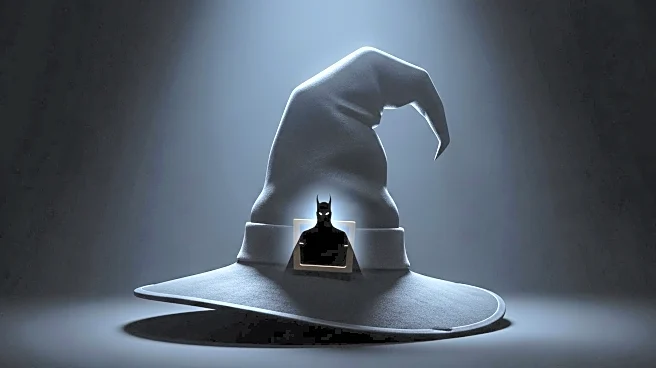What is the story about?
What's Happening?
Jude Law stars as Vladimir Putin in the film 'The Wizard of the Kremlin,' which premiered at the Venice Film Festival. The movie, directed by Olivier Assayas, explores the rise of Putin through the lens of Vadim Baranov, a fictional spin doctor played by Paul Dano. The film delves into the transformation of politics and the rise of authoritarian leaders, with a focus on Putin's ascent to power. Law expressed confidence in the film's nuanced portrayal, despite concerns about potential repercussions from Russia. The film's narrative is inspired by Giuliano da Empoli's novel, highlighting the influence of Putin's real-life advisor, Vladislav Surkov.
Why It's Important?
The film's exploration of Putin's rise to power and the broader implications of authoritarianism is significant in the current global political climate. It raises questions about the nature of modern politics and the dangers posed by authoritarian regimes. The portrayal of Putin and the film's themes resonate with concerns about the erosion of democratic values and the rise of autocratic leadership worldwide. The film serves as a cultural reflection on the impact of political power dynamics, offering insights into the challenges faced by democracies in maintaining their principles.
What's Next?
The film's release may spark discussions on the portrayal of political figures in media and the role of cinema in addressing complex political issues. It could lead to debates on the responsibilities of filmmakers in depicting real-life leaders and the potential influence of such portrayals on public perception. Additionally, the film may contribute to ongoing conversations about the state of global politics and the need for vigilance against authoritarian tendencies.
Beyond the Headlines
The film's depiction of Putin and the exploration of authoritarianism may prompt reflections on the ethical responsibilities of artists in representing political figures. It highlights the power of storytelling in shaping public discourse and the potential for art to challenge or reinforce political narratives. The film's themes may also resonate with audiences concerned about the preservation of democratic values and the impact of political leadership on societal norms.
















